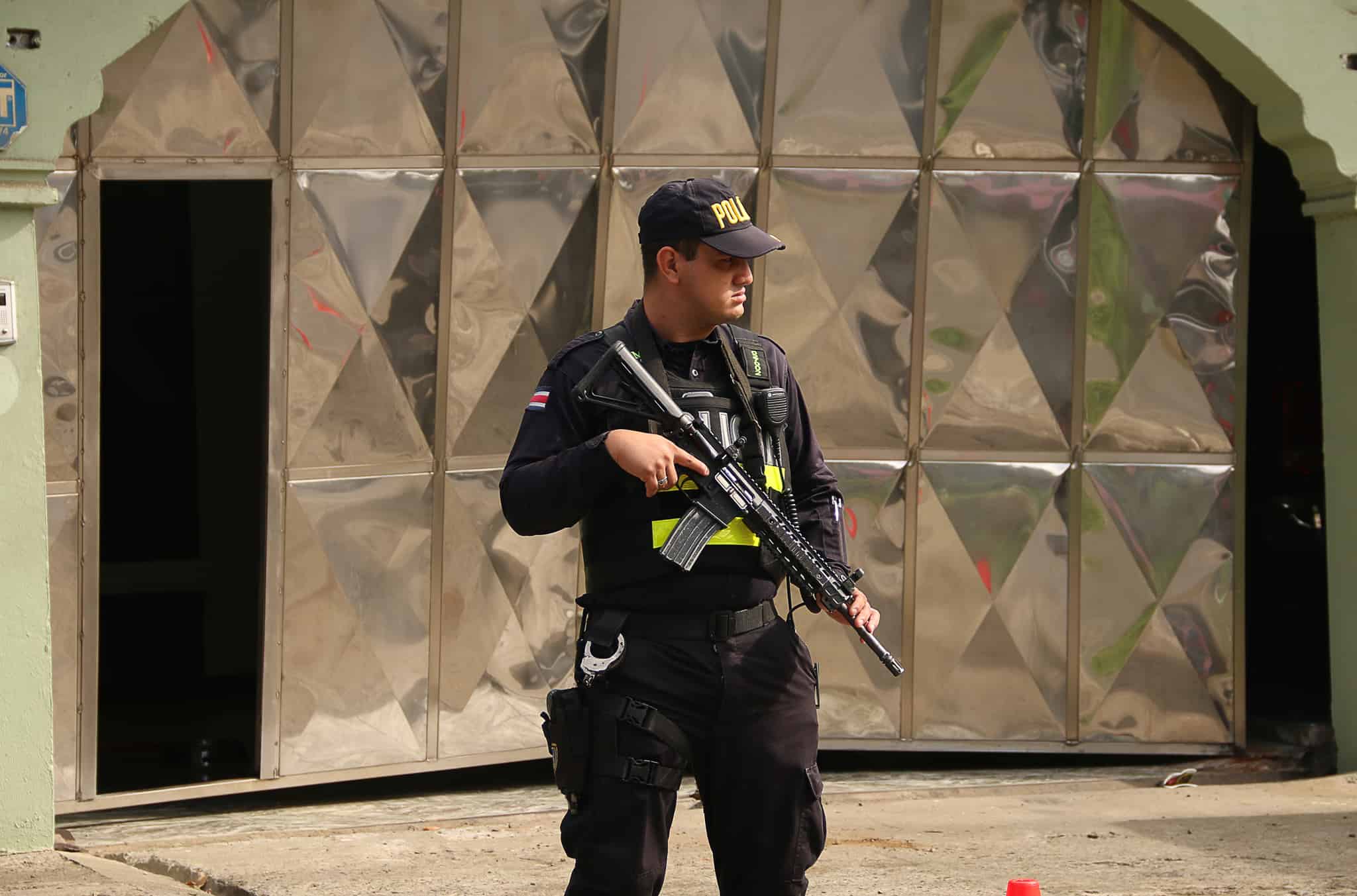In the early 1990s Gilbert Bell was known in the Caribbean province of Limón for his successful fishing business. Bell ran a fish dock where boats could come and unload their daily catch. For a while, no one found anything strange about Bell’s business, but it soon became clear that boats were catching more than fish in the Caribbean waters.
Bell, better known today as “Macho Coca,” allegedly used a network of docks, fishermen and bribed public officials to build himself a drug trafficking empire, but until last week no one could prove it. On Oct. 8, law enforcement agents raided several of Bell’s luxury properties throughout the country, seizing several vehicles and more than $69,000 in cash. With Bell and two of his associates now facing trial, details of the alleged drug operation have emerged.
According to law enforcement officials, Macho Coca made a name for himself on the drug trafficking scene by buying cocaine shipments found at Limón’s infamous Dos Aguas. Spanish for “two waters,” Dos Aguas is a spot along Costa Rica’s Caribbean Coast where the ocean currents merge, carrying in floating objects at sea. Drug traffickers on the run from the Coast Guard often toss bales of cocaine overboard. These packages frequently wash ashore at Dos Aguas, where they are picked up and sold.
Macho Coca’s business grew not-so-quietly throughout the region, and his fame spread abroad. The Nicaraguan Army linked Macho Coca to a series of attacks on national shrimping boats, and in the United States, the DEA opened a file on him. For decades locals, fishermen and even police claimed to know of Bell’s shady business dealings, but no evidence directly linked him to his infamous alter-ego, Macho Coca.
Despite his massive accumulation of wealth, Bell continued to present himself as a successful fishmonger. The businessman’s influence ran so deep that he was able to secure himself a position in the government’s highly criticized Costa Rican Fisheries Institute (INCOPESCA), where he served on the Advisory Committee for Caribbean Fishing until his arrest last week.
“Because of the way they work it isn’t easy to investigate drugs, it isn’t easy to investigate drug trafficking,” Gerald Campos, director of the Judicial Investigation Police (OIJ), told La Prensa. “Curiously, in Limón, everyone talks but no one will testify, and without witnesses we have to find other ways to investigate.”
And so it was with a clean criminal record that on Oct. 1, Gilbert Bell presented himself to the Legislative Assembly as part of an investigation about an illegal dock in Portete de Limón, where drug traffickers allegedly operated. Though Bell was the primary suspect in funding the estimated $2 million operation, both he and the mayor of the small town denied knowing who built the dock.
When a lawmaker asked Bell about his nickname, Macho Coca, Bell responded, “Everyone just calls me Gilbert Bell or Macho.”
En Comisión de Narcotráfico compare Néstor Mattis alcalde de Limón y "Macho Coca", Giberth Bell. pic.twitter.com/vMersoSGiQ
— Luis Zárate Alvarado (@elzaratismo) October 1, 2015
But Bell’s cool reply didn’t throw the OIJ, and armed with a year’s worth of wiretaps as evidence, prosecutors locked up Bell and two accomplices for six months of preventive detention, while they build a case.
Related: Drug traffickers lure Costa Rica’s struggling coastal fishermen with offers of easy money






